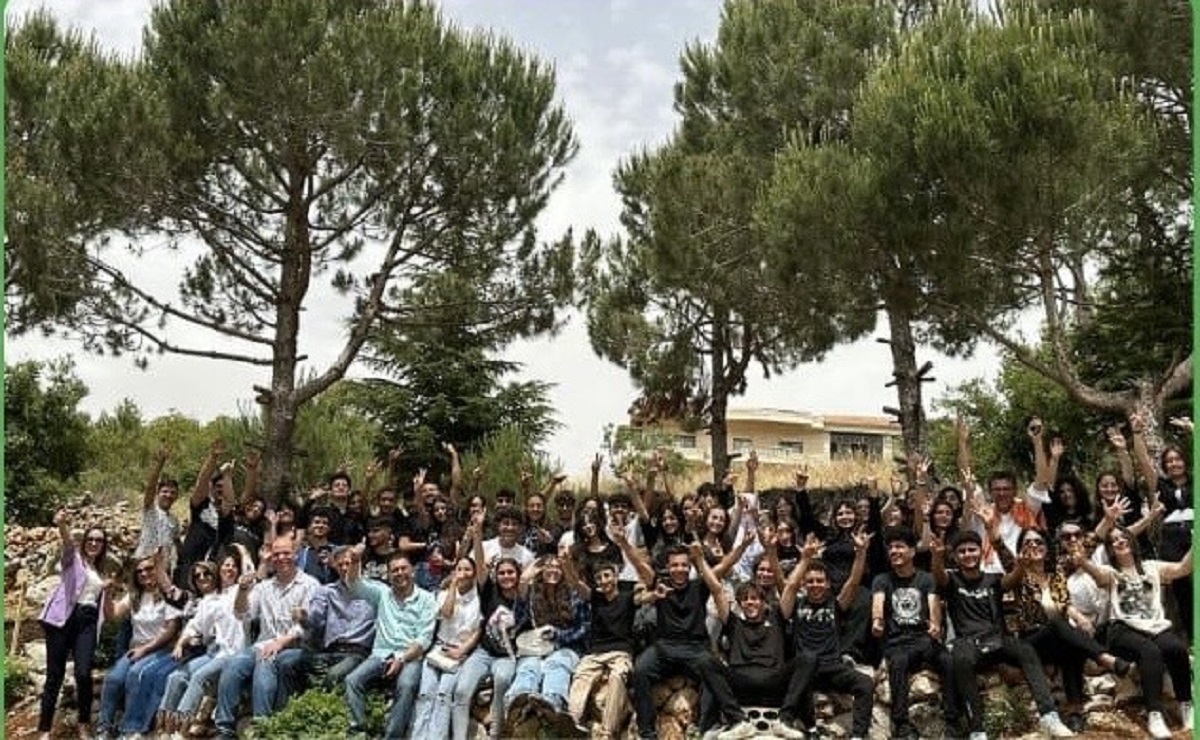
On helping the planet, teaching responsibility, sparking creativity, and building a strong sense of community among students: the success of Rashaya Secondary School shows just how important it is for schools and students to get involved in environmental work
Rashaya Secondary School has been honored as one of the top ten finalists in the World’s Best School Prizes 2024 for its remarkable environmental action projects. This prestigious award, founded by T4 Education in partnership with Accenture, American Express, and the Lemann Foundation, celebrates outstanding educational achievements across the globe.
The competition recognizes excellence in five categories: community collaboration, environmental action, innovation, overcoming adversity, and supporting healthy living. An expert panel will select the winners based on stringent criteria. Additionally, a public vote that started earlier, will determine the recipient of the Community Choice Award, with the winning school gaining membership in T4 Education’s Best School to Work program, which supports teacher well-being and addresses recruitment and retention challenges.
The journey began during the COVID-19 pandemic when Rashaya Secondary School sought to pull students away from their screen-dominated routines and reconnect them with nature. English teacher Roudaina Kassam was part of the community that spearheaded the initiative, focusing on utilizing the school’s unused land.
“We thought we should get back to the land,” Kassam explained. “We have a plot of land around the school that we had not used yet, so we decided to rehabilitate it for productive purposes.”
The school, in collaboration with its students, began planting various herbs like mint and lavender and even introduced beehives. This hands-on project allowed students to engage with nature and contributed to the school’s recognition for its environmental efforts.
The initiative gained momentum with the involvement of the local community. Kassam highlighted how a student’s parent, experienced in beekeeping, volunteered to teach the students. “The idea was to see if we could become financially independent by growing produce we could sell,” she said.
Funding for the garden came last year, enabling the school to transform the plot into a thriving space for plants. Students eagerly participated, tending to the garden even during their summer vacations.
“We were surprised to see how much students enjoyed their contributions,” Kassam remarked. “Even their parents noted that their children had never shown such interest in the environment before.”
Further funding allowed the school to develop a prototype for a self-watering system, although additional support is needed to fully implement it, especially for use during the summer months.
Rashaya Secondary’s innovative spirit extended beyond local projects. Last year, the school participated in a digital camp competition in the UK, presenting projects such as a personal air pollution filter and a natural bug repellent for bees.
The beekeeping project is also seen as a potential income source, especially crucial as many parents struggle with rising tuition fees amid Lebanon’s ongoing economic crisis. Kassam emphasized the broader impact on students, noting that “there are students who have developed stronger mindsets and personalities. We instill the idea of entrepreneurship in their heads at a young age.”
As they await the results to see if they advance in the competition, Rashaya Secondary remains committed to expanding its environmental goals, including achieving a waste-free status and developing their own recycling systems.
“Our achievements have given us the confidence that every time we enter a competition, we aim to win it,” Kassam affirmed.
The success of Rashaya Secondary School shows just how important it is for schools and students to get involved in environmental work. It’s not just about helping the planet; it’s about teaching responsibility, sparking creativity, and building a strong sense of community among students. Schools have a unique chance to lead by example, inspiring young people to care for and improve their environment. By weaving environmental projects into everyday learning, schools can equip students to face real-world challenges and make a lasting impact on sustainable development.
Please vote for the school here: https://worldsbestschool2.us.launchpad6.com/public-vote-2024/entry/1319








